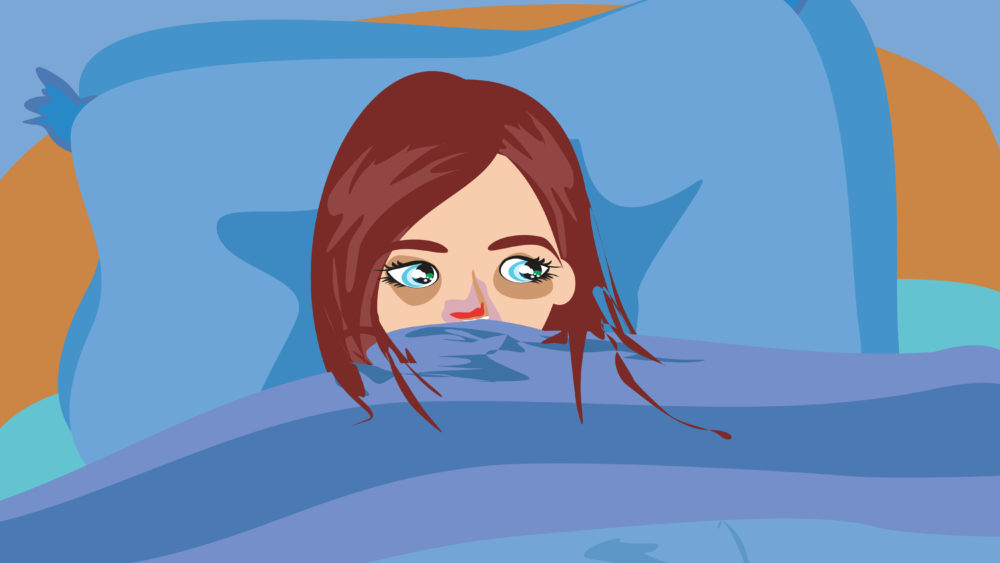As autumn turns to winter, days get shorter and darker, snow falls, and the air becomes brutal. This can affect your body inside the house, even when you’re tucked into bed. When it’s too cold to sleep, you’ll find yourself cursing the winter season as you toss and turn and blow your nose into a tissue. Here’s what happens to your body when it’s too cold to sleep at night.
Your Skin Gets Dry
Cold weather makes your skin feel dry on your hands, feet, elbows, and face, and it can even cause skin cracking if it gets severe. The constant itching and sore skin patches can keep you from sleeping, and dry skin can cause discomfort if something brushes against it.
According to Healthline, “When your skin doesn’t have enough protective oils, moisture escapes from it…when there isn’t enough water in the outermost layer of your skin, it becomes dry.” Cold, dry air sucks the moisture from your skin, making it scaly, itchy, and inflamed. This, combined with the heat inside your house, exacerbates symptoms and makes them worse.
Your Sinuses Clog Up
The cold weather affects your sinuses, giving you that perpetual sniffle, a stuffy nose, and sinus headaches. The cold weather dries out the mucous membranes inside your nose, making you more susceptible to congestion. Blowing your nose into a tissue over and over also irritates your nostrils and makes them feel sore. According to Kristin Hayes, RN of the online medical resource Verywell Health, ” Dry nasal passageways may lead to inflammation of the blood vessels in the nose and sinuses and subsequent congestion.” Having a stuffy nose or inflamed sinuses prevents you from falling asleep, especially if you feel pressure around your nose.
Your Sleep Quality Worsens
When the temperature in your room starts to get cold, that makes you turn up the thermostat and grab three layers of blankets, right? However, doing that can make you overheat, especially if you wrap yourself in warm garments that trap in heat. As a result, you’ll find yourself waking up repeatedly, feeling hot and unable to go back to sleep. According to a study published in the Journal of Physiological Anthropology about heat overload and sleep, “Wakefulness is the only stage that can cope with an increased thermal load and that wakefulness replaces SWS (Slow-Wave-Sleep) and REM to maintain homeothermy.” This makes it difficult to get a good night’s sleep when the winter season hits.
Sources:
https://www.healthline.com/health/dry-skin-winter-monthshttps://www.verywellhealth.com/dry-nose-and-sinuses-1192181
Okamoto-Mizuno, K., & Mizuno, K. (2012). Effects of thermal environment on sleep and circadian rhythm. Journal of physiological anthropology, 31(1), 14. doi:10.1186/1880-6805-31-14. https://www.ncbi.nlm.nih.gov/pmc/articles/PMC3427038/



